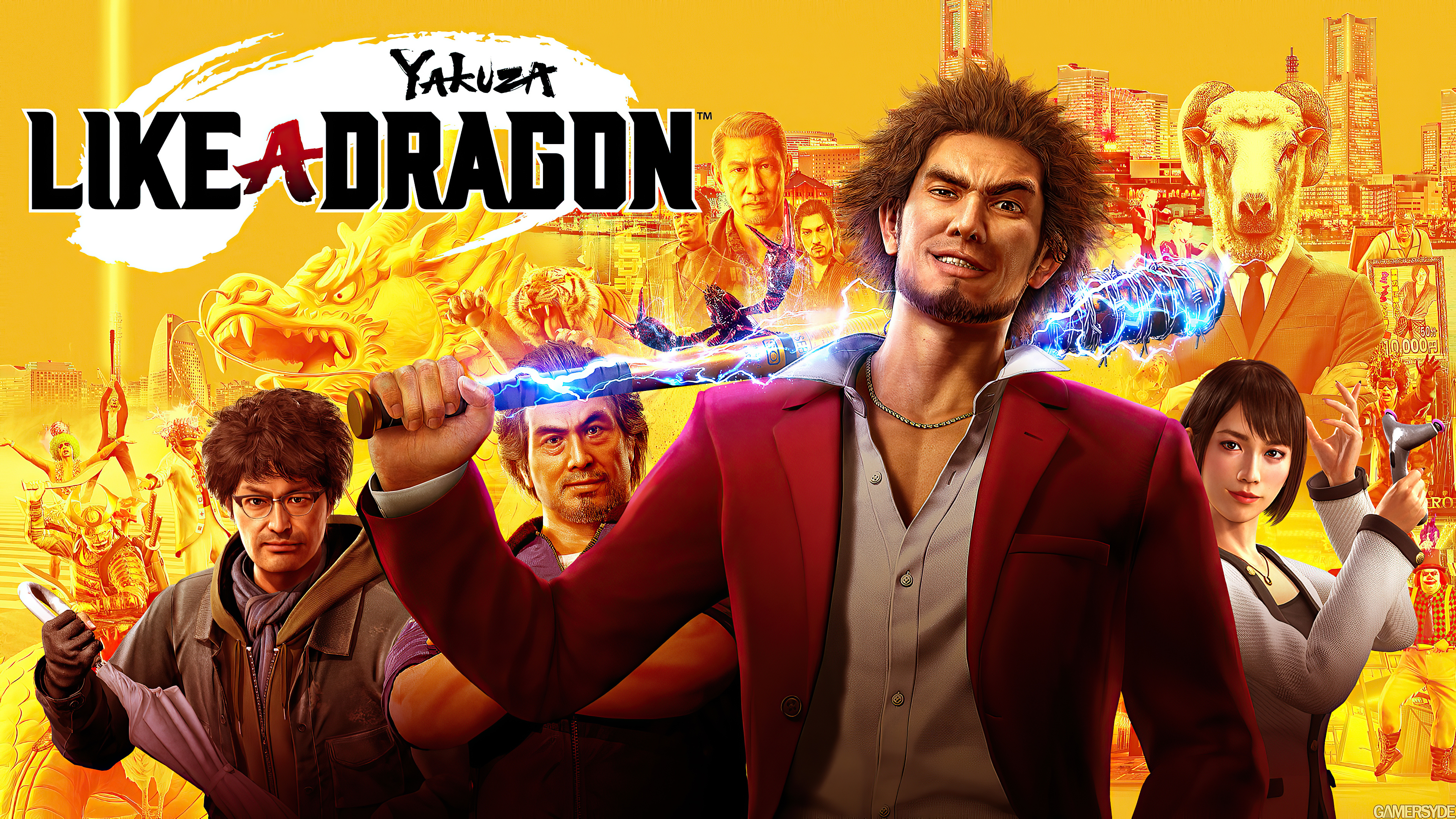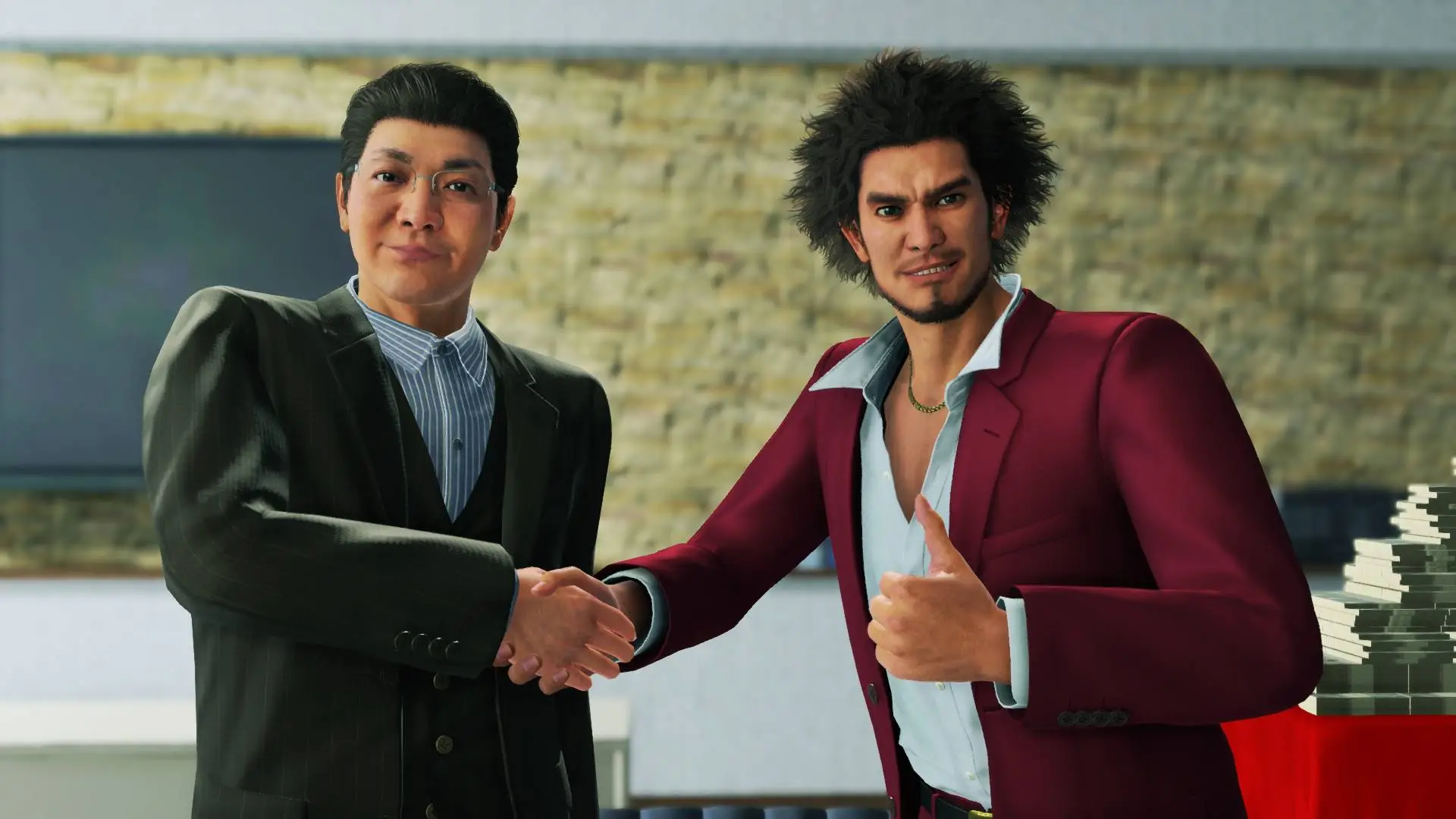

Returning fans will feel right at home with Yakuza: Like a Dragon's story.

(Image credit: Sega) Yakuza: Like a Dragon review: Story It's a shame that developer Ryu Ga Gotoku Studio felt the need to water down an otherwise unusually well-paced, high-octane JRPG with such obvious padding, especially since the endgame and postgame content don't properly reward or justify the grind. The endgame, which requires you to level-grind in a literal sewer, is even less engaging. After you pass the halfway point of the game, you unlock an "optional" thirty-floor tower where you can grind characters' levels, but it's so short that you'll have to replay the same floors over and over to reap real results. I wish the game had "recommended level" indicators ahead of each major mission to prevent these time-wasting surprises, some of which basically force the player to reload old saves.įor those who want to grind levels in order to avoid power disparities, there aren't many good places to do so. There's nothing worse than making it through a lengthy story mission without issue, only for the tail end of it to feature a high-level boss who can brush off knives, pistols and rocket launchers, all because an arbitrary number imbues them with godly strength. In Like a Dragon, you cannot, thanks to random appearances by high-level enemies periodically halting forward progress. In previous Yakuzas, if all you cared about was the story, you could barge right through it. My only gameplay complaint stems from Like a Dragon's inclusion of the most obnoxious JRPG trope ever - mandatory level grinding.

(Image credit: Sega) Yakuza: Like a Dragon review: Level grinding However, even as a JRPG, Like a Dragon's mechanics are clearly cut from the same cloth as a traditional brawler, as evidenced by the inclusion of quicktime events, reflex-based blocking, improvised environmental attacks and other elements that add a little Yakuza-flavored spice. Speaking of changes of pace, know that Like a Dragon is a Japanese role-playing game (JRPG), which is a far cry from Yakuza's usual beat-'em-up fare. He's an optimistic and energetic change of pace from the impassive Kiryu. Whereas Kiryu was the stoic Clint Eastwood-esque alpha male archetype, Ichi is a hard worker and positive spirit. There is one thing that greatly distances Ichiban from Kiryu, though: relatability. The new character and setting are refreshing, but their quirky, colorful DNA will be immediately familiar to series fans. Like a Dragon, though cognizant of Kiryu and Kamurocho, focuses on a new dynamic duo: bottom-tier Tojo Clan member Ichiban "Ichi" Kasuga and the Yokohama district of Isezaki Ijincho.

Previous games starred protagonist Kazuma Kiryu and took place in the fictional Tokyo red-light district Kamurocho: a setting with enough personality to essentially be its own character. Yakuza: Like a Dragon is the seventh "main" Yakuza game, and it shakes up the series in a lot of ways.


 0 kommentar(er)
0 kommentar(er)
